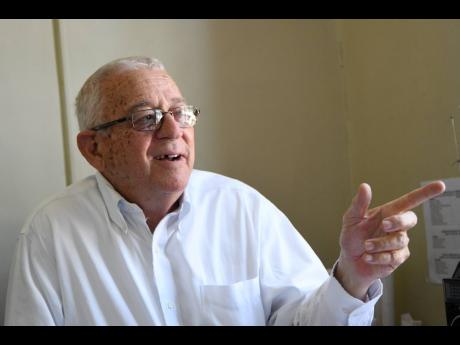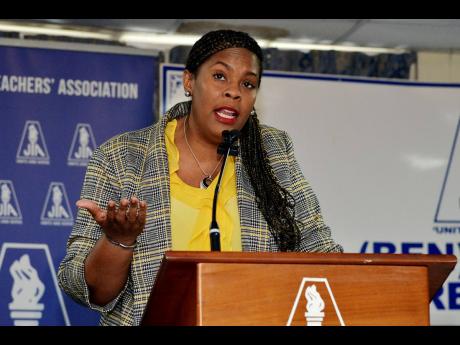Thwaites calls for a recasting of the educational framework
WESTERN BUREAU:
Former Minister of Education Ronald Thwaites says there is need for a recasting of the framework of the teaching profession to makes teachers more accountable in the educational transformation needed to make Jamaica prosperous.
According to Thwaites, who held the education portfolio in the 2012 to 2016 Portia Simpson-led People’s National Party administration, there is currently no system in place to demand accountability from educators.
“Currently, the accountability of teachers in the Jamaican education system is basically nil,” said Thwaites, who is also an experienced attorney-at-law. “The arrangement that we have with our teachers is not sustainable.”
According to Thwaites, in the Code of Regulations 1980, which is still in use, after a one-year probation, a teacher can be hired permanently, and cannot be moved except for the most egregious dereliction of duty, and no demand is made of that educator, despite the performance of the student under their watch.
“If you look at the provision for leave, all other professions in Jamaica work for 280 days, but a teacher works in the classroom for 190 days,” said Thwaites, albeit noting that the current remuneration scales make the profession an unattractive option.
“When I became minister, one of the first things I did was to sit down with the previous minister, who is now the prime minister (Andrew Holness) to be briefed and challenged,” said Thwaites. “And I sensed from him, what I eventually experienced, that it had a high quotient of frustration embedded, because of certain rigidities in the system, and also because, unlike Cuba and Singapore, we don’t seem to understand that nothing will work until we get education right.”
Thwaites says he failed in his efforts to effect change due to resistance from the political establishment, the JTA, and sections of the private sector.
But Jamaica Teachers’ Association (JTA) President La Sonja Harrison says there are accountability measures embedded in the Code of Regulations, that if the processes are properly observed, a teacher can be successfully dismissed if found guilty of a breach.
According to her, Section 55 of the Code of Regulations clearly outlines those matters that the teacher may be held accountable for, in addition to what is outlined in the Child Care and Protection Act.
“The problem is always the process employed in doing so,” said Harrison. “Because that process is not one that can be easily manipulated by those who have personal motives, and even on unfair grounds; and if it is those processes are breached, those are normally outlined, and the teacher is dismissed from the job.”
THE MINIMUM
Regarding the assertion that the teacher receives extended periods of holidays, the JTA president questioned whether Thwaites has spent any considerable time in the classroom, noting that the legal stipulation is for a teacher to engage the students for a minimum of 190 days.
“To have the mindset that because the students are not at school, the teachers are idle, I would want several of those persons to come and volunteer, not even for a term; just come for a few weeks.”
Last year, former Prime Minister Bruce Golding said that Jamaica’s biggest area of failure in the post-Independence era has been to create an educated society.
Describing the JTA as one of the most powerful pressure groups in Jamaica, Golding called for a unified stance against any effort to resist the reformation of the sector.
“They (JTA) know how to play the Opposition and the Government against each other. If ever there was a time when Government and Opposition, and even the private sector, need to come together and say, ‘Look, this is our biggest problem and this is what we have to fix ...’, said Golding.
According to data from the Jamaica Education Transformation Commission report, 53 per cent of children who sat the Primary Exit Profile examination could not read; 56 per cent were not able to write; and 57 per cent were not able to identify information in a simple sentence, albeit they will transition to the secondary level.
At the same time, 41,000 children graduate from secondary schools each year, with only half who are eligible to sit the Caribbean Secondary Education Certificate examinations. Of that amount, only 28 per cent attain passes in subjects, including mathematics and English.


